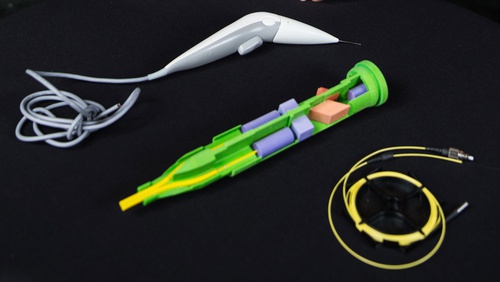Oliver has spent over five years as part of a team developing clinical probes that could revolutionise cancer screening. They are committed to enabling on-the-spot cancer diagnosis with minimal discomfort for patients - and without an anxious wait for results.
The group has developed a proprietary method of using small probes using fibre optics to direct laser light onto cells. They then analyse the interaction of this light with the molecules inside. This provides a molecular ‘fingerprint’ to identify different types of cells and any cancerous changes within them.
Using this technique can yield almost instantaneous results and is both faster and more objective than current testing. Traditional testing involves sending tissue that has been surgically removed to a lab to be analysed by a pathologist, a process that is traumatic for the patient and costly for the system.
The new process has been demonstrated to be at least as accurate as conventional gold standard pathology. However it doesn’t require the removal of tissue and allows for the immediate intervention and ongoing monitoring by clinicians.
In future, the technology is seen to have many other clinical applications as well as this humane testing process.
The technique has already undergone extensive tests on human tissue at Gloucestershire Hospitals NHS Foundation Trust, with one of the probes set to begin clinical trials within 18 months.

